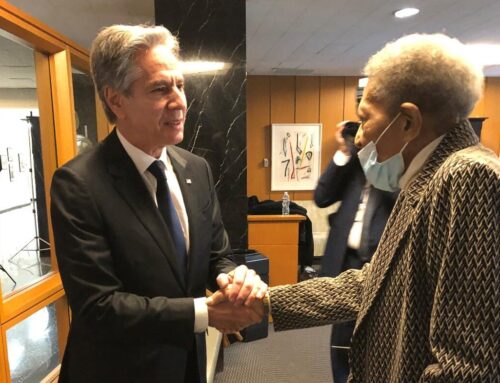Research shows that 37% of managers actually avoid giving positive reinforcement altogether.
One CEO says “By showing them that I see them, I trust them, I’m showing them my gratitude for them being here and know they’ve got my back, they are the most productive workforce I’ve ever had the privilege of working with.”
by Karlyn Borysenko for Forbes
Photo: Adobe Stock
This article is part of a series I’m doing about the benefits of infusing kindness, gratitude, and presence into your work experience. Follow along.
Henry Kissinger once quipped, “the reason that university politics are so vicious is because the stakes are so small.” It’s a notoriously difficult industry to work in that is slow to change, short of resources, and where workplace bullying occurs at an extraordinarily high rate. As many as 62% of administrators have either experienced or witnessed workplace bullying.
That’s why Eric Mochnacz, a 15-year veteran of higher education student life, felt so relieved after he pivoted his career to join the boutique human resources consultancy Red Clover in New Jersey. “There are days when I literally wake up and drive to work and think I am so thankful for the opportunity I have.” He’s not just referring to the change of pace of moving into an HR role. For Eric, it’s all about the culture that has been created by his firm. “I’m treated like an adult, and that’s so important to me because working in the environments I did in my thirties, I felt like my behavior was compared to that of an 18-year-old. Here, I’m in a more mature environment where my work is appreciated.”
Mochnacz credits Red Clover’s Managing Director Jennifer L’Estrange with creating an environment in which he feels truly appreciated. And he knows that she believes in him to get the job done. “There’s this feeling of indebtedness that I don’t want to screw up. I was able to be honest and say, ‘Listen, I’m really struggling with imposter syndrome.’ Jen would say, ‘Eric, you’re good. You are exactly who this company needs.’ To hear that and believe it was huge.”
Gratitude at work isn’t about platitudes. It’s about action.
Instilling appreciation and positive recognition into corporate culture might seem like a no-brainer, but research shows that 37% of managers actually avoid giving positive reinforcement altogether. L’Estrange knows that trust is essential and has woven it into the daily process at Red Clover. “My approach to leadership is it starts and ends with creating a culture of trust. Everything we do from the policies we put in place, to the way we pay people, to how we do performance development, to how we hold one-on-one conversations, to how we run team meetings, to how we do our company values, to how we make changes is fundamental to what we do with our clients. But also internally, everything starts with people feeling that they’re in an environment where we trust each other because we cannot function without that.”






